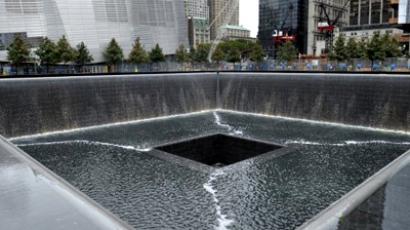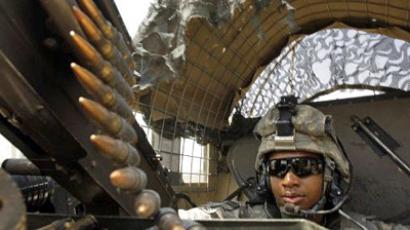‘US Empire starts to fold’
The tragedy of 9/11 was a criminal act led by someone who is from a family very close to the Bush family. The act signals the beginning of the end of the American Empire, author and journalist Afshin Rattansi told RT.
According to Rattansi the main reason why the US did not manage to prevent the terror act from happening was the failure of institutional structures. “Even in a country as advanced as the super-power America, institutional structures were at fault. Many people said the institutional and bureaucratic procedures did not allow them to shoot down those planes before they hit the World Trade Center,” he said.“But all systems seem to have failed – the media, the courts, police forces, the intelligent agencies, government. And it happens when empires start to fold,” Rattansi added. The aftermath of the tragedy led to the Iraq conflict and the Afghanistan war. With Afghanistan now on the way to democracy, many say this is the right thing to have happened. But according to Rattansi, democracy building needs to be created from the ground up. “One would not want to go into Egypt because the transitional council was causing some problems in what was obviously a people’s revolution against a US dictator,” he explained.Obviously lessons have been learned from Afghanistan. The US has been involved in the military campaign in Libya. But as Rattansi told RT, the continued US support for dictators and vile regimes means America is making the same mistakes again.“In Libya we now hear the US is backing some revolutionaries who want a genuine transformation of Libyan government. But it is also backing people that are quite close to the ideas of Osama Bin Laden,” he maintained. “On a larger scale the US response to 9/11 was so catastrophic as a great number of people all around the world have been affected so badly by US policy,” he added.
And journalist and former director of the French daily Le Monde, Jean-Marie Colombani believes the US attack on Iraq without any credible reason was a dangerous mistake – something Bin Laden wanted the US to commit.“We all know now that the war in Iraq was a pretext,” Colombani told RT. “It was a failure and a big mistake coming from George Bush, who was at that time the president of the US." “In Afghanistan it was kind of normal defense because everyone happened to know that Al-Qaeda had kind of territory [there]. So lots of countries followed the US in solidarity,” he went on. “Iraq was totally different. In a way, the war in Iraq was what Bin Laden hoped George Bush would do. Bin Laden hoped the war in Iraq would create chaos, which would allow him to raise generations of terrorists and that nearly happened.”
Political analyst Shikha Dalmia believes the attacks on Iraq and Afghanistan have cornered the US. It has very few opportunities left and uses double standards. “The problem is that with Afghanistan and all the other interventions there is not any good precedent left for the US not to intervene,” she told RT. “We have established the precedent here that the US has to be the global cop. And if it is called upon to play a global cop in Syria, I don’t see on what basis it can really refuse. There is a danger it can get involved in a new quagmire,” “But there is a double standard,” she went on. “In Libya, the way things played out, there was a huge cry from the European community to intervene and the US kind of got dragged into Syria, because the Europeans had aided the US in Afghanistan. And it was a sort of quid pro quo. These absolutely are the reasons for double standards for the US.”
‘Superpowers should learn to wage limited wars’
Historian and professor Stanley Kutler believes that the ensuing nine years of casualties after the initial invasion of Afghanistan could have been avoided if the US had learned to set limited military objectives.“What superpowers have not learned to do in this day and age is to manage a limited war with limited objectives,” he said. “Instead the populace and nation are tuned to a full-scale war. And people do not, or cannot, or will not, understand the idea of limited objectives. No, we have to have victory!” Kutler believes that the US learned some lessons from Iraq and Afghanistan and has applied the knowledge to Libya.“We responded in a limited way to Libya,” he said. “Limited airstrikes and it stayed that way. It resulted in the toppling of the Gaddafi regime. Should we go beyond that, should we engage in nation-building?”Kutler says it is questionable whether the United States can continue to afford such nation-building adventures.“Those experiments don’t work very well,” he said. “We have limited success for such things. And more than that, we are at the day and age of diminishing resources.”














